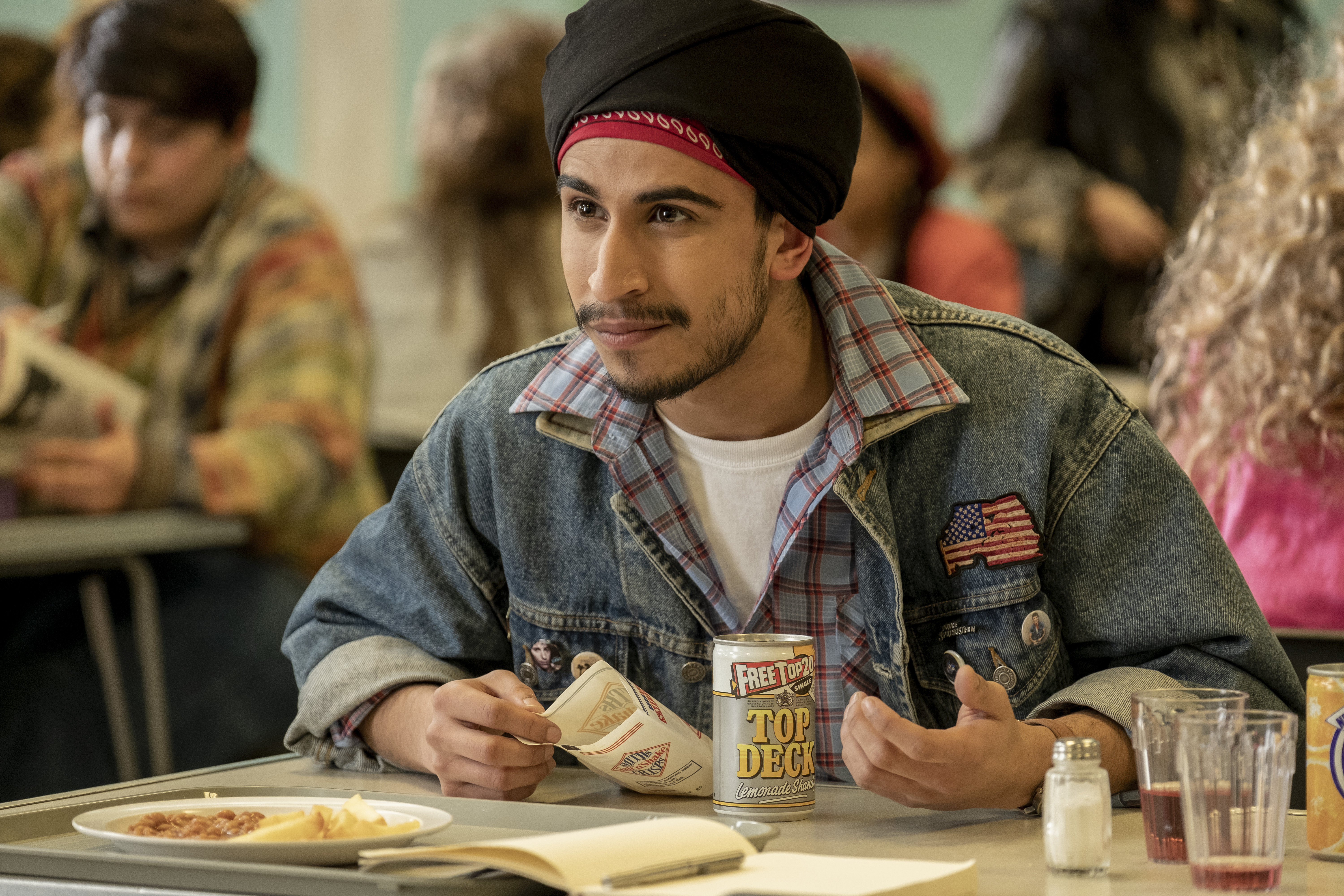A few days ago, India Post had a phone conversation with Aaron Phugara, a 22-year-old actor from Kent, England. Aaron is a third-generation British Indian. He plays the role of Roops, the Sikh friend of the protagonist Javed in Gurinder Chadha’s “Blinded By The Light”. Both characters are teens in sixth form, a pre-university class in the UK. The film is set in 1987 in the town of Luton, England and is based on the screenwriter, Sarfraz Manzoor’s own experiences growing up. Aaron was touring the US, promoting this film when this interview took place.
India Post (IP): Is this your first time in the US?
Aaron Phugara (AP): I have been to the US before. Both times, it has been for my films so I’ve not had much time to see places around.
IP: Tell me something about your acting background.
AP: At the age of 16, I left school to pursue a career in acting. Unlike London, which is full of creative people, Kent, the city where I am from, has a lot of professionals such as electricians and plumbers so it was an unusual choice to become an actor. The year after I decided to leave school early, the system across the UK made it mandatory to stay in school until one turns 18, so I got lucky. I had decided that this was what I wanted to do.
IP: How did your family react to that?
AP: They were surprisingly supportive for an Indian family.
IP: You must have been so happy to get this role. Did you land it after going for an audition?
AP: I had actually auditioned for the role of Javed along with Viveik Kalra (who plays Javed in the film). Viveik did a great job and I can’t think of anyone else in the role. Since I am more extroverted, Gurinder said, “I see you as Roops.”
IP: How did you prepare for the role?
AP: Besides reading the book on which the film is based and going over the script many times, I listened to a lot of Bruce Springsteen’s songs, even watched a documentary on him. In the beginning, it was difficult as this was not the music that I was used to listening to. I wanted to understand what made Bruce so loved and adored, and his global appeal.
IP: Did the real Roops watch the film? What was his reaction?
AP: He loved it! For me, the most important thing was that (the real) Roops likes it. Everything else is a bonus point. I am so happy that the film is released worldwide.
IP: Given the current political climate, immigrants face a lot of challenges in Europe and the United States. Regarding immigrants’ experiences then and now, how different was it for Roops and yourself?
AP: It is not that different, unfortunately. My grandparents came over in the 1970s and moved into a predominantly white neighborhood. They got it a lot then (racist behavior towards them). It was probably worse than – a decade earlier (than when the film is set) – but you have this feeling that you (the immigrant) are in their (host) country, so you “keep your mouth shut, your head down and you keep walking”. My parents got it a lot and I got it a lot. The important thing is that now, they (the immigrants and their descendants) have their voice. I was not raised to be a victim.
IP: Did you get to meet Bruce Springsteen?
AP: Yes, I did, very briefly. He (Bruce) is a very busy man, flying all over to different places.
IP: Do you look up to other British actors as role models?
AP: I used to look up to a lot of actors but not anymore. I now look up to my mother and my grandparents who passed away.
IP: Do you feel you might get pigeonholed as an actor?
AP: I don’t want to be recognized by people only for certain characters in some films. I want to be known for good work. These days, actors are getting roles not because they are white or black
IP: Are you considering doing theatre or crossover films, Bollywood in the future?
AP: It is not on top of my mind right now. I prefer films because they can reach so many people.
IP: What about moving to Hollywood?
AP: Though I like LA, it’s not a place I would like to call home.
As told to Lakshmi Iyer
(Some quotes are not verbatim and have been edited and paraphrased.)







